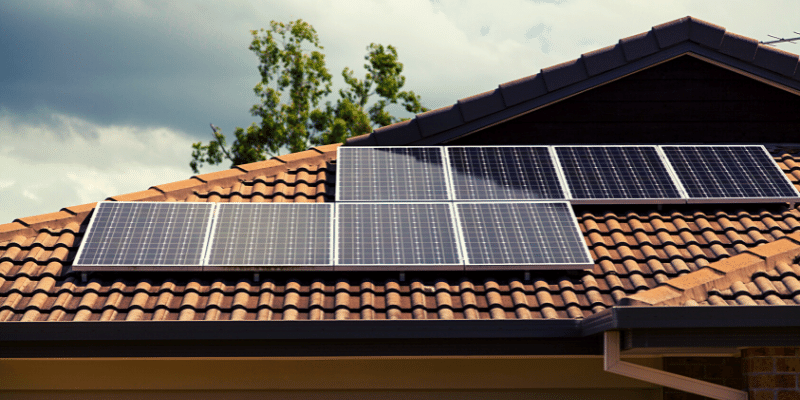When you’re working hard to make ends meet, every dollar counts. It can seem impossible to cut costs without cutting back on essentials like food or clothing. However, there are plenty of small ways to save money and stretch your budget further in the long-term.
Whether you are buying your first home or buying a second home, with a little thought and planning, it is possible to bring down your monthly expenses at home. Even if you feel like you have no excess spending capacity, there are ways that you can reduce your cost of living on a day-to-day basis.
From small changes such as switching your cell phone provider to switching grocery stores, these 8 tips will help cut costs at home – without having any negative impact on your lifestyle!
Change your phone provider
The average American family spends nearly $25 a month on their cell phone provider. That’s more than many people pay for their electricity bill! Switching to an alternative cell phone provider could save you hundreds every year.
If you have family members who use your service, even better – you can save even more. Keep an eye out for deals and offers from your existing provider – if you’re using lots of data, you may be able to get a better deal. It’s also worth considering the long-term costs of different cell phone providers.
Some providers charge a hefty termination fee if you want to switch away from them. By shopping around and comparing providers, you can find a better deal and save yourself hundreds of dollars in the long run.

Grow your own food
You might be surprised by how much a garden can save you. Although the upfront costs of installing a garden and purchasing supplies can be expensive, they are a great investment. You can expect to pay around $10 per person per month to grow your own vegetables.
Once you’ve got everything set up, growing your own produce is actually pretty cheap! Plus, there’s nothing tastier than food that you’ve grown yourself. Vegetables like tomatoes and zucchini have a very low cost per serving, so growing your own can really help to reduce the cost of your grocery bill.
Growing your own produce will help you to save money in other ways, too – less time spent in grocery stores and fewer products used to grow your food means reduced carbon emissions and a healthier environment!
save money by insulating your home
Insulation can make a huge difference in terms of reducing your energy bills over time. If you’re renting or own a home that has been around for a while, it’s likely that it’s not properly insulated. This is likely to be the case in many older houses.
Although you can’t do much about a house’s age, you can save money by insulating your home to reduce your energy costs.
You can also use insulation to reduce the noise in your home, saving you from a lot of headaches! Insulation is not just for homeowners; renters can also benefit from it. You may be able to claim a grant from the government to help pay for it.
Switch to a grocery store with an aisle diet
When you’re on a tight budget, it can be tempting to fall back on your old eating habits. However, one of the easiest ways to cut your grocery bill is by switching to a different store. If you are currently shopping at a more expensive store, you could be spending as much as $100 more each month.
This might not seem like a significant amount, but over the course of a year, it can really add up! By switching to a cheaper grocery store, you can save hundreds every year. By switching your store, you can also choose to switch the foods that you buy.
Rather than buying items such as fresh fruits and vegetables that are expensive but healthy, you can buy cheaper, less healthy foods at a cheaper store. By choosing cheaper, but still healthy foods, you can bring down your grocery expenses further.
Lock in your prices on household essentials
Some household items, such as cleaning products, toilet paper, and paper towels, are generally sold at a mark-up. There’s no reason to buy these items at full price. Instead, buy these items in bulk when they are on sale.
You can also try buying your cleaning supplies in bulk. This can save you a lot of money, as these items are generally marked up. By buying them in bulk, you can reduce the amount that you spend each month. It can also be a good idea to buy certain items when they’re on sale.
While it may not be realistic to buy everything at a reduced price, it is a good idea to stock up on certain household items when they’re reduced.
Repurpose items you already own
Many people buy new items when they break, but in many cases, these items can be fixed. Repurposing items you already own is a great way to reduce the amount you spend on things like clothing or even cleaning products.
You may not be able to repair everything, but many items can be fixed easily, saving you money. However, it can be a good idea to check with a repairman first, just to make sure you’re not wasting your money if it’s not worth fixing. Many people don’t repurpose items because they don’t know how.
Fortunately, there are lots of online communities where people share their skills and knowledge. Joining one of these communities can help you to learn new skills and save money on the things you need.
Shop in bulk and buy in season
It’s a well-known tip, but it’s also one of the most effective ways to reduce the cost of your grocery expenses. If you are able to purchase items in bulk, you’ll be able to reduce the cost per unit of these items – and save yourself money!
You can also save money by purchasing produce when it’s in season. Produce is often cheaper, as it is planted and grown in different areas seasonally. It’s also delicious! Buying items in season allows you to get the same product for a reduced cost – it just happens to be more delicious, too.
These examples are just a few of the ways that you can save money by purchasing items in bulk or during their season. There are many more ways to save money in this way, so it’s worth experimenting and seeing what works for you!

Install solar panels and other energy-efficient devices
Although the upfront costs of installing solar panels can be high, they can actually save you money over time. If you live in an area where solar power is viable, it can be a great investment. You can expect to recoup your costs within a decade, and solar panels can last for up to 30 years, meaning they will continue to save you money long after they are paid off.
Other energy-efficient devices, such as LED lights and water heaters, can also save you money. You can also reduce your energy costs by making sure you switch off your lights and electronic devices when you are not using them. Reducing your bills in this way is a great way to save money.
Conclusion
These 8 tips will help you cut costs at home without sacrificing your quality of life. From switching your phone provider to repurposing items you already own, these tips will save you hundreds of dollars each year.
By making a few small changes, you can reduce your household expenses and create a more affordable way of life.
